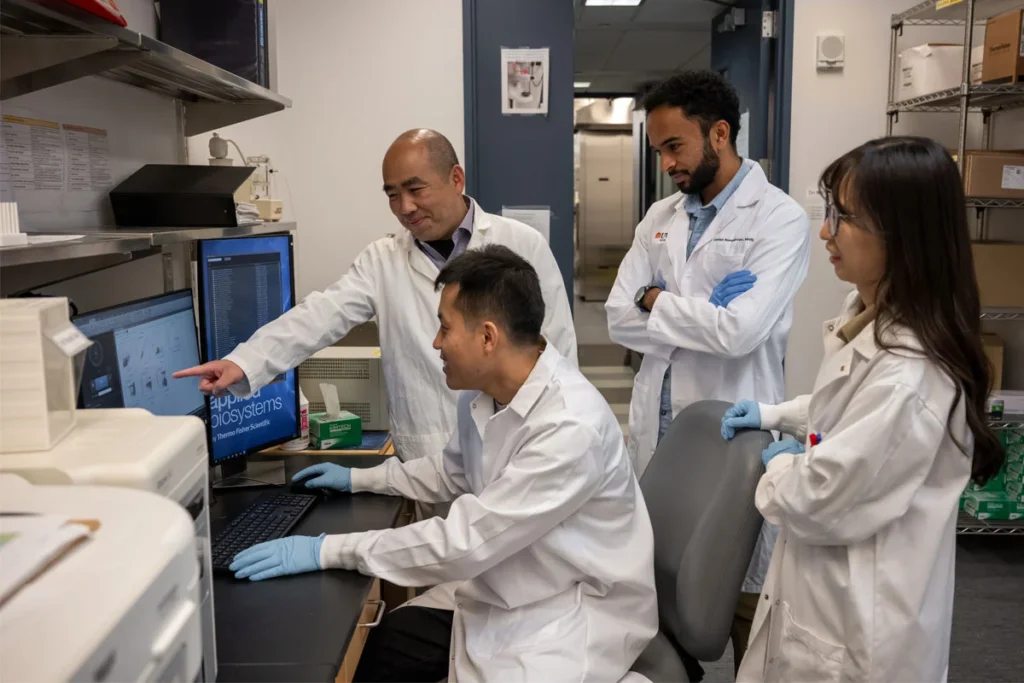
Arthritis drugs already available for prescription have the potential to halt lingering lung problems that can last months or years after COVID-19 infections, new research from the School of Medicine and Cedars-Sinai suggests.
By examining damaged human lungs and developing an innovative new lab model, the scientists identified faulty immune processes responsible for the ongoing lung issues that plague an increasing number of people after they’ve otherwise recovered from COVID-19. These lasting harms of COVID infection, known as “post-infection lung fibrosis,” have no good treatments. The new research, however, suggests that existing drugs such as baricitinib and anakinra can disrupt the malfunctioning immune response and finally allow damaged lungs to heal.
“Our collaboration with doctors and computer biologists at UVA and Cedars-Sinai, including Drs. Chen and Zang, led us to uncover the root cause of persistent lung inflammation and scarring after severe acute COVID-19 and possibly other respiratory infections like the flu,” said researcher Jie Sun, PhD, of UVA’s Carter Center for Immunology Research and UVA’s Division of Infectious Diseases and International Health. “Using advanced technologies like spatial transcriptomics and sophisticated microscopy, we compared lung tissues from patients and animal models we developed in the lab. We found that malfunctioning immune cells disrupt the proper healing process in the lungs after viral damage. Importantly, we also identified the molecules responsible for this issue and potential therapeutic options for patients with ongoing lung damage.”
“‘Spatial-omics’ are state-of-the-arts technologies that can measure the molecular features with spatial location information within a sample,” explained researcher Chongzhi Zang, PhD, of UVA’s Department of Genome Sciences. “This work demonstrates the power of spatial transcriptomics combined with data science approaches in unraveling the molecular etiology of long COVID.”
The researchers note that the findings could prove beneficial not just for lung scarring from COVID but for lung fibrosis stemming from other sources as well.
“This study shows that treatments used for the acute COVID-19 disease may also reduce the development of chronic sequelae, including lung scarring,” said Peter Chen, MD, the Medallion Chair in Molecular Medicine and interim chair of the Department of Medicine at Cedars-Sinai. “Our work will be foundational in developing therapies for lung fibrosis caused from viruses or other conditions.”
